

The Pratt & Whitney Canada PT6
Part 1. Construction
Compiled by Kimble D. McCutcheon
Published 14 Aug 2017
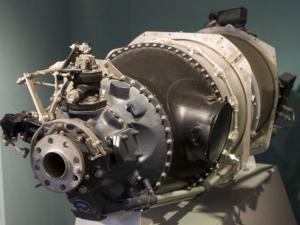 (By lmnop88a - Pratt & Whitney Canada PT6-20, CC BY 2.0, https://commons.wikimedia.org/w/index.php?curid=59204856) |
The Pratt & Whitney Canada PT6 is one of the most successful turboprop/turboshaft engines in history, having sold more than 51,000 units. Available in power ranges covering 580 to 1,940 shp, its variants powered more than 100 types of aircraft and helicopters. The engine described here is the PT6A-27, which is used in the Beechcraft Model 99A and de Havilland Canada DHC-6 Twin Otter 300, among others. The PT6 is a lightweight free-turbine engine employing a compressor with three axial stages and one centrifugal stage that provides a 7.0:1 compression ratio. Fuel is added to the compressed air and burned in a reverse-flow annular combustor. The resulting hot gasses enter a free turbine that drives the compressor. A second turbine drives the propeller/transmission through reduction gearing. The PT6A-27 produces 715 effective shaft horsepower (eshp), and when cold has a 19" diameter and 62" length; it weighs 289 lb. This article was made possible through a generous donation of scanned material from Stephen Stanley. |
Table of Contents
Part 1: Construction
Part 2: Air System
Part 3: Lubrication System
Part 4: Ignition System
Part 5: Fuel System
Part 6: Controls and Instrumentation
Part 7: Propeller Reversing
| Rating | ESHP | SHP | Prop RPM |
Gas Generator RPM |
Power Turbine RPM |
Jet Thrust (lb) |
SFC @ 15°C (lb/eshp/hr) |
|---|---|---|---|---|---|---|---|
| Takeoff | 715 | 680 | 2,200 | 38,100 | 33,000 | 90 | 0.603 |
| Max Continuous | 715 | 680 | 2,200 | 38,100 | 33,000 | 90 | 0.603 |
| Max Climb/Cruise | 652 | 620 | 2,200 | 38,100 | 33,000 | 90 | 0.612 |
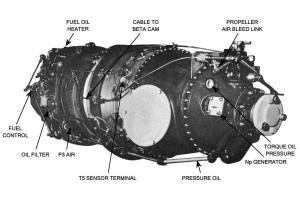 |
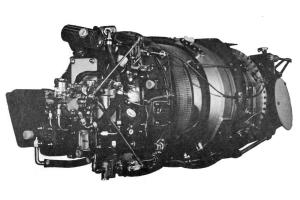 |
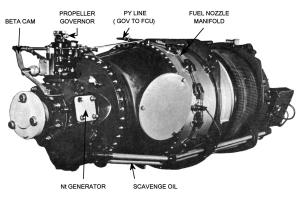 |
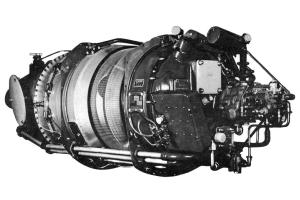 |
| PT6A-27, Right Fore | PT6A-27, Right Aft | PT6A-27, Left Fore | PT6A-27, Left Aft |
The remainder of this article is available only to AEHS Members. Please Login.